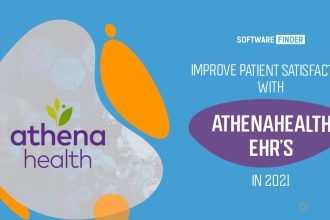High cholesterol and high blood pressure are separate issues that are each concerning on their own. However, if you end up with both, you could be at risk of great damage to your blood vessels which increases the risk of future complications significantly. Keep reading for everything you need to know about high blood pressure, cholesterol and the connection between the two.
High Cholesterol
Cholesterol is a substance that the body needs to aid in creating cell walls and certain hormones. The liver is responsible for cholesterol production in the body. In addition to your liver creating cholesterol, you can also get it through dietary sources. Animal products like meat, seafood, dairy or eggs all contain cholesterol. When cholesterol is created or enters the body, it is carried around the body in particles referred to as lipoproteins.
There are two different types of cholesterol called low-density lipoprotein or LDL and high-density lipoprotein or HDL. You may have heard LDL referred to as the bad type of cholesterol and HDL referred to as the good type. This is due to the bad type being known to increase the risk of cardiovascular disease, while the good type has been known to lower the risk. When an individual has high cholesterol, this can often be due to the excess consumption of bad sources of cholesterol. Eating foods high in saturated fat, not getting enough exercise, and smoking can all contribute to this issue. There are also certain diseases and medications that can increase your risk of high cholesterol.
The Relationship Between High Cholesterol and Blood Pressure
High cholesterol and high blood pressure have a close relationship. More than sixty percent of people with high blood pressure also have high cholesterol. This is because they are both intertwined. When the body can’t clear excess cholesterol from the bloodstream, it ends up being deposited along the artery walls. When this occurs, the arteries can become stiff and narrow. This causes the heart to be forced to work overtime to get the blood pumped through them, resulting in high blood pressure.
Once someone with high cholesterol has developed high blood pressure, the artery walls will become further damaged over time. This happens in the form of tiny tears that allow for even more cholesterol to collect as it struggles to pass through. So once one of these issues has developed, you become at an increased risk for the other as they both feed into each other.
It is imperative that the issues are kept under control to help decrease the risk of further complications as each of these issues individually increases your risk of metabolic syndrome. Metabolic syndrome significantly raises your risk for diabetes, heart disease and stroke. Being that high cholesterol and blood pressure are a risk on their own, when they come together your risk of developing complications increases drastically.
How to Manage It
If you have high cholesterol, high blood pressure, or both, there are some ways you can alter your diet to improve your symptoms and risk of further complications. You can also try out one of the many natural supplements to lower cholesterol. Here are some of the things you can start doing immediately to improve your condition:
Controlling Your Weight: Maintaining a healthy weight is essential for controlling high blood pressure and high cholesterol. If you are currently at a healthy weight, focus on maintaining your weight through a healthy, balanced diet and light daily exercise. If you are currently overweight, focus on building habits that can help you get your weight into a healthy range. Consider working with a dietitian to come up with a plan that will work for you.
Reduce Saturated Fats: Saturated fats are largely responsible for high cholesterol. If your diet is currently high in foods like red meats, anything fried, or full fat dairy products, consider replacing these sources of saturated fats with monounsaturated fats. Things like olive oil, avocados or nuts and seeds are sources of fat that will serve you better as you seek to lower cholesterol and blood pressure.
Increase Potassium Rich Foods: Studies have shown that a diet high in potassium rich foods can help to lower the bad cholesterol (LDL) levels in people with high cholesterol. To benefit from potassium, increase your consumption of foods like apricot, avocado, banana, cantaloupe, spinach, tomatoes, or low-fat dairy products.
Managing Your Blood Pressure and Cholesterol
If you have developed high blood pressure or high cholesterol, or a combination of the two, try some of these dietary changes to improve your symptoms today. The longer you live with these conditions, the more likely you are to develop further complications. Make sure you are taking the time to improve your wellbeing so you can stay healthy and make the most out of your life.















